TO LEARN MORE ABOUT HOSTING
A COOL CAREERS IN CYBERSECURITY FOR GIRLS AFTER SCHOOL PROGRAM
- Typical After-school Program Overview [PDF]
FAQ
- You will need a location to host the program. The host facility will need reliable access to the internet and enough computers for students to work on (portable laptops have also been used)
- The number of computers and size of the room will depend on the number of students you plan on inviting.
- An instructor computer, projection device, reliable internet, speakers and screen is also required.
- A Program Advisor who serves as the liaison between the program and the location site.
- The Program Advisor may also serve as the program instructor. The instructor should have a working knowledge with computers. Instructors are trained by C34G staff. Typically, C34G instructors are educators with a background in a STEM related field, technology/media specialists, tech ed and computer science teachers, software developers, programmers, computer science majors, retired engineers or computer scientists. If the host site does not have an individual to serve as an instructor, C34G will work to place one or more instructor at your site. However, we cannot guarantee that a volunteer instructor will be available to serve at your location.
- Expenses that you may need to consider:
- If you are an outside group planning to host at a school, you may need to pay for the facilities and/or staff (janitor/nurse)
- Some teacher instructors may need to be paid. Funding options have included PTA support or charging a nominal fee to cover the instructor time
- Additionally, expenses may include: snacks, outside presenter small gifts, T-shirts, give-a-ways, equipment, handouts, certificates etc.
- provide facilities and all onsite logistical support
- be able to market the event, recruit attendees, help recruit guest speakers, recruit instructor, and coordinate activities between the host institution, attendees and the C34G staff
- be able to attend a C34G program host training session in advance of the program starting
- the instructor must attend a C34G program training session in advance of the program starting
- distribute and submit pre and post event surveys as requested by C34G staff
- host 10 sessions, 1-2 hours each, per semester
- submit materials, press event items and/or pictures to document and showcase your great event!
This has actually proved to be a lot easier than one would think. A simple email request for volunteers to local business, faculty and government agencies produces wonderful results. In addition, women IT groups, Chambers of Commerce and state and local Government can help you find a wide range of volunteers. Just make sure you give them plenty of time to recruit. C34G provides templates and examples to help get you started.
Recruiting techniques will vary. Many C34G programs partner with local school districts, schools and PTAs to offer the after-school program. Recruitment and marketing should be done through a variety of means to include, PTA newspapers, fliers to send home with students, directly with schools/school districts, state departments of education, informal STEM programs etc. C34G provides templates and examples to help get you started.
Students engage in hands-on STEM activities and learn about digital literacy (technology fluency and applications, team building, collaboration tools, problem based critical thinking), tied to local math , technology and science curriculum while learning and applying basic ethical, safety and security concepts through gaming, modeling and simulation development, all while investigating exciting careers that interconnect the fields of science, technology, engineering and math- emphasis placed on cybersecurity including cryptography and digital forensics.
C34G After-school Programs:
- Promote careers in Science, Math, and Engineering that utilize Technology, with a particular focus on careers in Cybersecurity
- Correlate with the school’s on-going Science and Math curriculum
- Promote fun and age appropriate activities
- Promote digital literacy supporting the C3 framework and National Educational Technology Standards for Students (NETS*S)
Programs have been held in after/before school, extension or integrated format delivery. A staff member from the school is recruited to serve as advisor/instructor for the program. We provide professional development, supply materials and content updates, and continue to network, support and connect all instructors for cross pollination of efforts. Sessions typically run between 1 and 1 ½ hours once a week. The year round program typically consists of two 8-10 week sessions over the course of the year. Speakers are scheduled for each semester.
If run as an informal after school program, students are recruited through school efforts; fliers, PTA bulletin, school newsletters and website. Principals work with teachers to also target students. Past efforts have been fruitful in recruiting girls and special needs students (autistic and dyslexic). Take home parent materials are included with all activities. Parents are encouraged to attend at least one session each semester, in addition to the final Student Showcase event held at the end of each term. The program encourages students to continue to stay with the program by offering small give-aways for class challenges (donated by partners), session certificates and yearly participation awards (trophies-which get larger for each year participating).
Students learn about programming/computational logic, coding-decoding/cryptography, system vulnerabilities, digital forensics and careers in information assurance/cybersecurity, as well as learning more about the security clearance processes and identity management strategies.
Currently there are six module themes: Cryptography; Computational Logic/Programming; Digital Ethics, Safety and Security; System Vulnerabilities; Digital Forensics and Project Management. The six areas include activities that have been developed for grade bands 3-5, 6-8 and 9-12. Tied to partnering school system math, technology and science curriculum, students engage in hands-on STEM activities and improve digital literacy skills while learning and applying concepts through gaming, modeling and simulation development. Speakers and field trips are integrated in the programs. The central focus is the field of Cybersecurity, but it is supported by the too often neglected topics of citizen awareness of cyber education; Cyberethics, Cybersafety and Cybersecurity. An interdisciplinary approach engages students and adds relevance to the traditional curriculum.
C34G’s provides the following:
- C34G’s Program Toolkit which includes:
- Sponsorship request letter template
- Sponsorship form template
- Recruitment flier template
- Press release template
- Presenter volunteer request template
- Follow up thank you letter template
- Instructor recruitment template
- T-shirt design template
- Program timeline and checklist
- Daily messaging template and examples
- Student Showcase Invite Template
- C34G host training session in advance of the event (1-2 hours)
- C34G instructor training in advance of the event (~4-6 hours)
- Updated content based on a variety of current cybercrime scenarios
- video
- project based activities developed around the six major themes: Cryptography; Computational Logic/Programming; Digital Ethics, Safety and Security; System Vulnerabilities; Digital Forensics and Project Management
- hands-on activities to support career connections in cybersecurity related to the cybercrime scenario
- supplemental parent and student career briefs
- Pre and Post event evaluation instruments
- Consultation where needed
- Branding, marketing and press
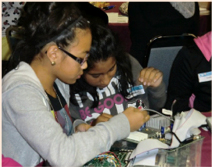 Due to the large volume of requests for content, activities and training from educators and parents,
Due to the large volume of requests for content, activities and training from educators and parents, 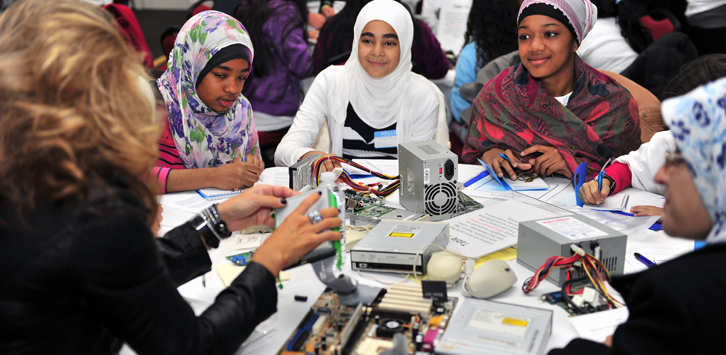
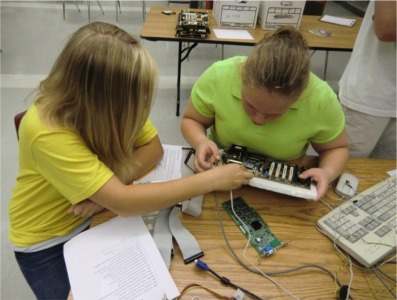
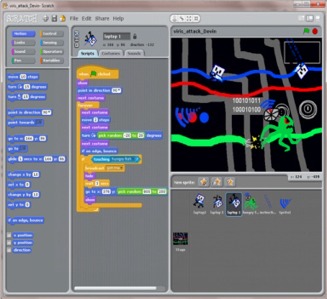
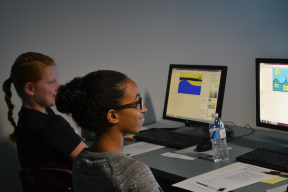 Cool Careers in Cybersecurity Summer Camps:
Cool Careers in Cybersecurity Summer Camps: